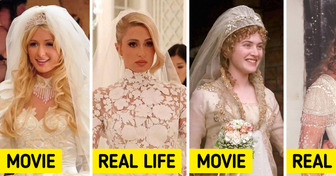“Aged Suddenly,” Angelina Jolie Surprises People With Drastic New Look

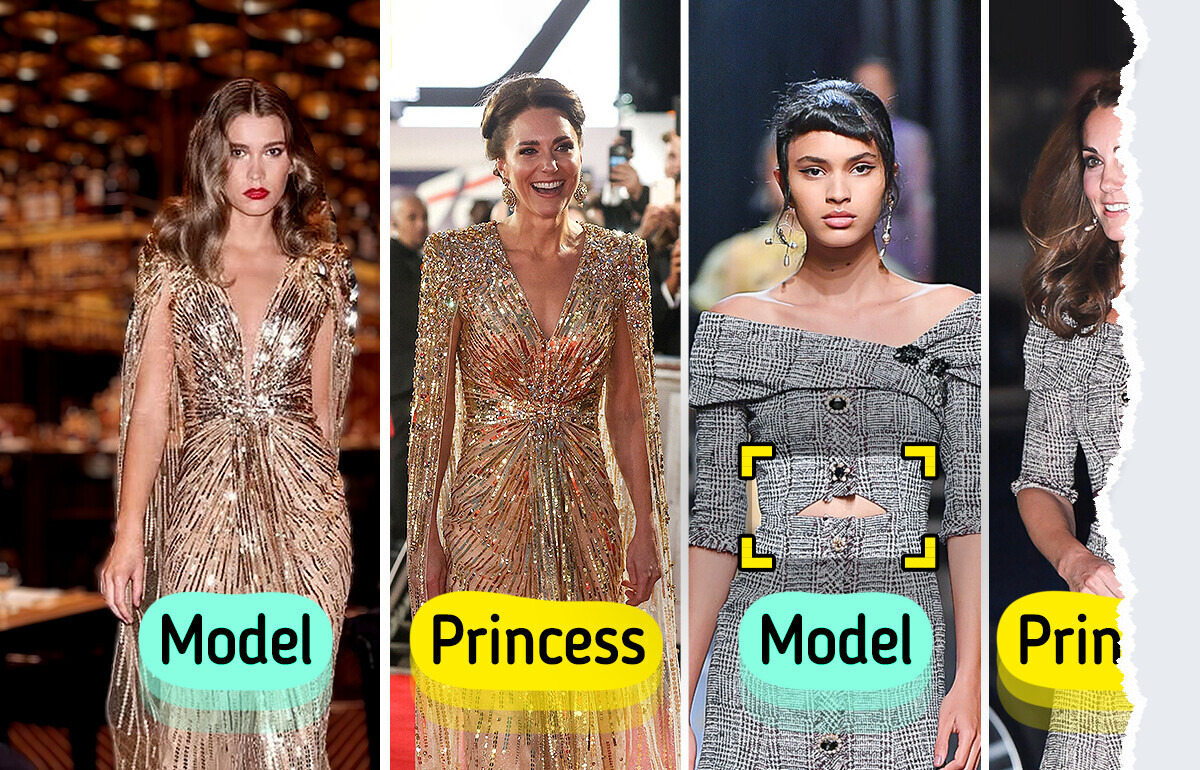
Great Britain has long been known for its deep appreciation of tradition, especially when it comes to style and elegance. Among those who embody this refined sense of fashion is Princess Catherine, whose every appearance captures the attention of both the media and the public. Today, she is celebrated for her timeless and sophisticated style, but her fashion journey has evolved significantly over the years.
The texture and style of your hair can significantly influence how your facial features are perceived. Straight hair often emphasizes the natural lines and angles of the face, which can create a more structured and strict appearance. In contrast, waves or curls add softness and volume, introducing a sense of openness and approachability to one’s look. This effect is particularly notable for individuals with angular facial features, as curls can help soften sharp lines, creating a more balanced and inviting appearance.
Runway fashion often pushes boundaries, but royal attire follows tradition. Designer outfits are modified to fit protocol, with adjustments to hemlines, sleeves, transparency, and necklines to ensure modesty and elegance.
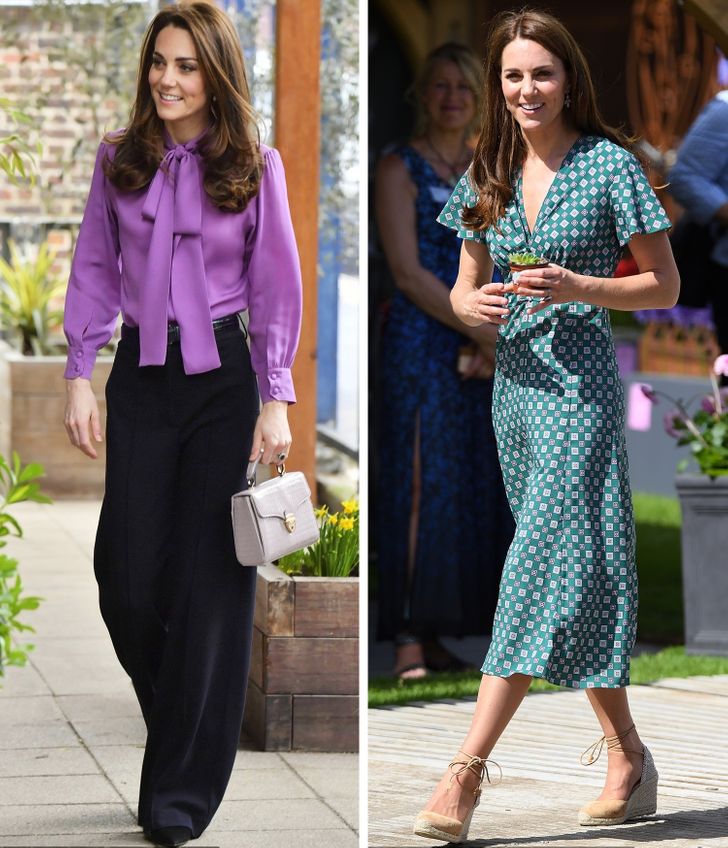
In 2016, the Duchess of Cambridge participated in a Vogue photoshoot, opting for a casual, cowgirl-inspired look that she styled herself. This approach received criticism for being too simplistic for a duchess. Recognizing the need for professional guidance, Kate later sought assistance from experienced stylists.
In April 2019, with her assistant Natasha Archer on maternity leave, Kate enlisted her university friend and former British Vogue editor, Virginia Chadwyck-Healey, as her new stylist. The two met while studying art history at the University of St. Andrews in Scotland. Virginia’s fresh perspective contributed to a more modern and impressive evolution of Kate’s style.
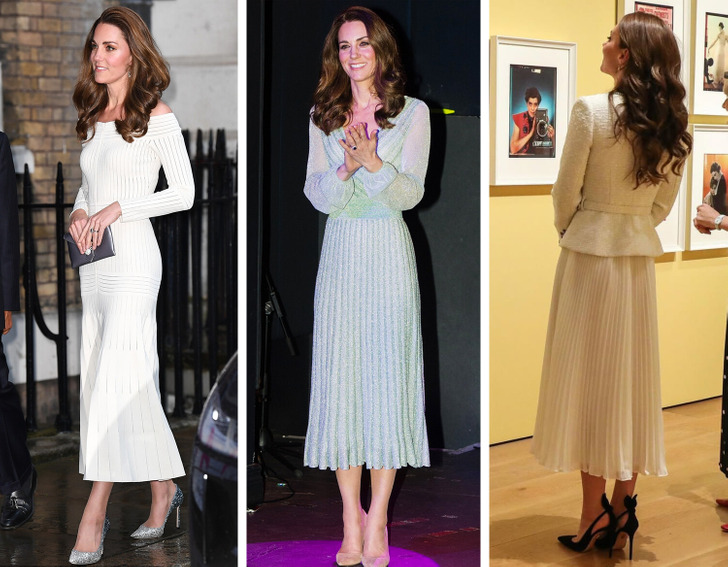
As the Princess of Wales and future Queen Consort, Catherine’s fashion choices are guided by royal traditions that emphasize timeless elegance over fleeting trends. Her wardrobe often features classic silhouettes and sophisticated designs, reflecting her commitment to these enduring standards. While she occasionally incorporates subtle modern elements—such as off-the-shoulder dresses or pleated skirts—her ensembles remain within the boundaries of royal decorum. Consequently, items like leopard-print tights, bomber jackets, or oversized blazers are notably absent from her attire. This deliberate approach ensures her style remains both appropriate and inspiring, aligning with her role’s expectations.
In contrast, Meghan Markle, whose husband is sixth in line to the throne, enjoys more flexibility in her fashion selections. This allows her to experiment with contemporary trends and express her personal style more freely. Her choices often include modern cuts and bold accessories, reflecting a more relaxed approach to royal fashion.
Both women’s fashion decisions highlight the balance between tradition and individuality within the royal family, each navigating their roles with distinct sartorial expressions.
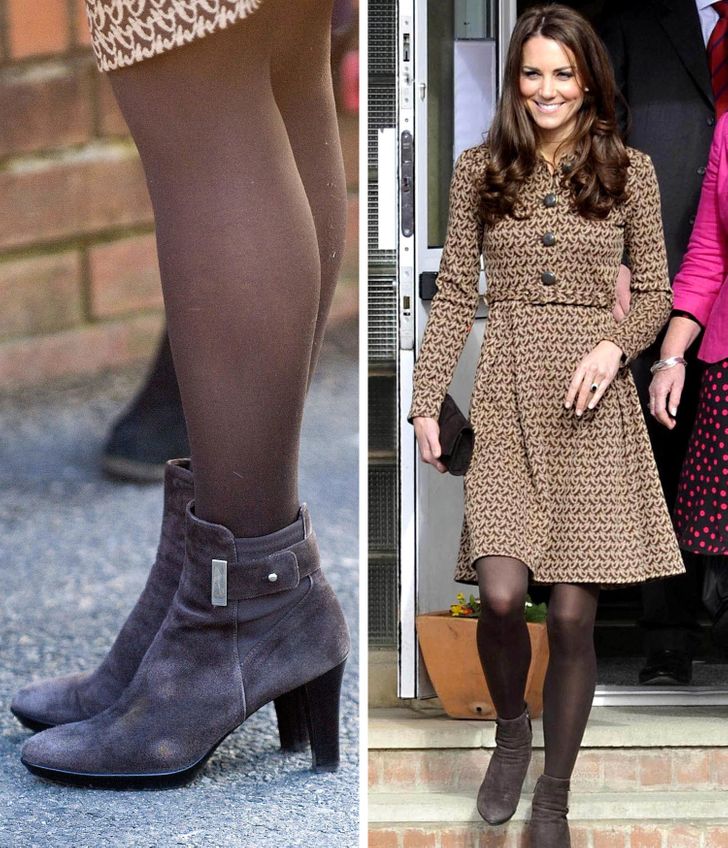
In her early days as a royal, Princess Catherine was often seen wearing well-worn suede ankle boots. While some may view this as a relatable fashion choice, members of the royal family are typically expected to maintain a polished and impeccable appearance. Wearing worn-out footwear can be perceived as inconsistent with the standards of royal attire.
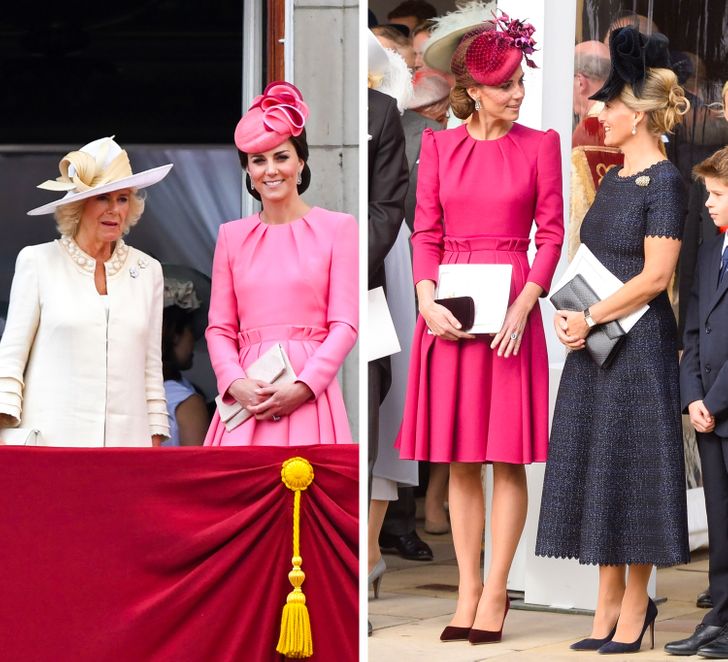
To maintain a polished appearance and avoid wearing worn items, Princess Catherine often purchases multiple versions of favored clothing pieces in different colors. For instance, she owns Alexander McQueen coatdresses in various hues, including ivory, soft pink, and black, allowing her to present a fresh yet consistent style at numerous events. Additionally, she has acquired the same coat design in red, blue, and other shades, demonstrating her strategic approach to wardrobe planning.
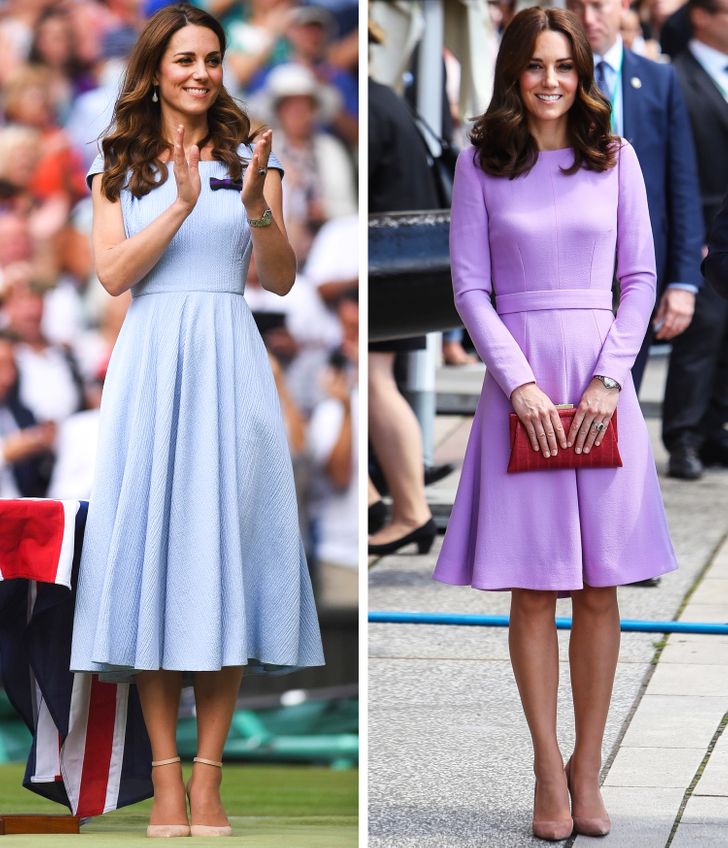
In her early days as a royal, Princess Catherine often favored shorter skirts and dresses, choices that reportedly did not align with Queen Elizabeth II’s preferences for more conservative attire. Recognizing the importance of adhering to royal protocols, Catherine and her style advisors adjusted her wardrobe to feature longer hemlines. The elegant midi-length dresses and skirts she now favors not only embody the conservative royal aesthetic but also ensure she maintains poise and avoids potential wardrobe mishaps associated with shorter garments.
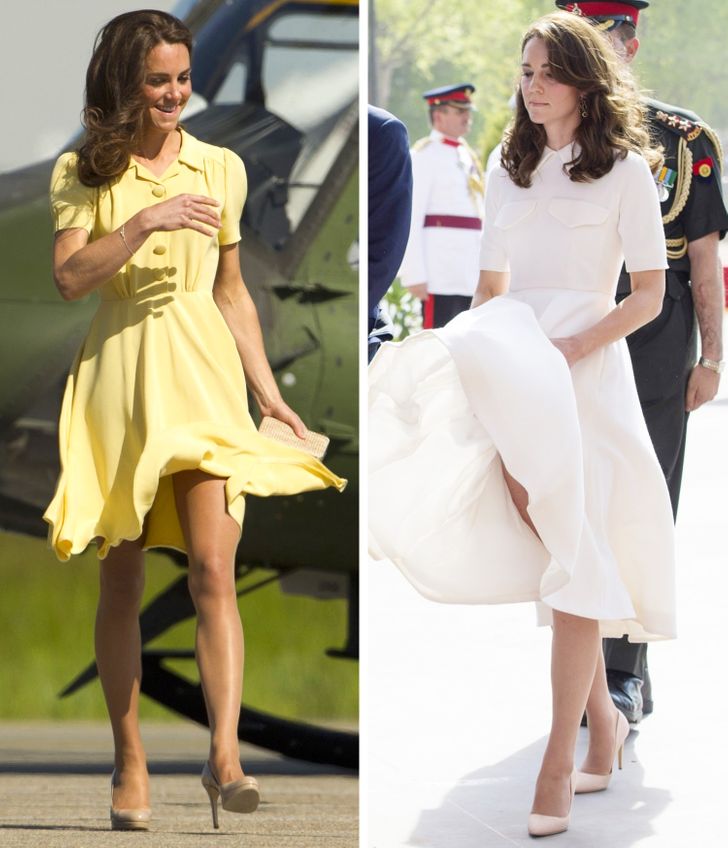
To prevent wardrobe malfunctions caused by wind, Princess Catherine has small weights sewn into her skirt hems, ensuring elegance and adherence to royal decorum. This discreet trick, also used by Queen Elizabeth II, keeps her outfits in place during public appearances.
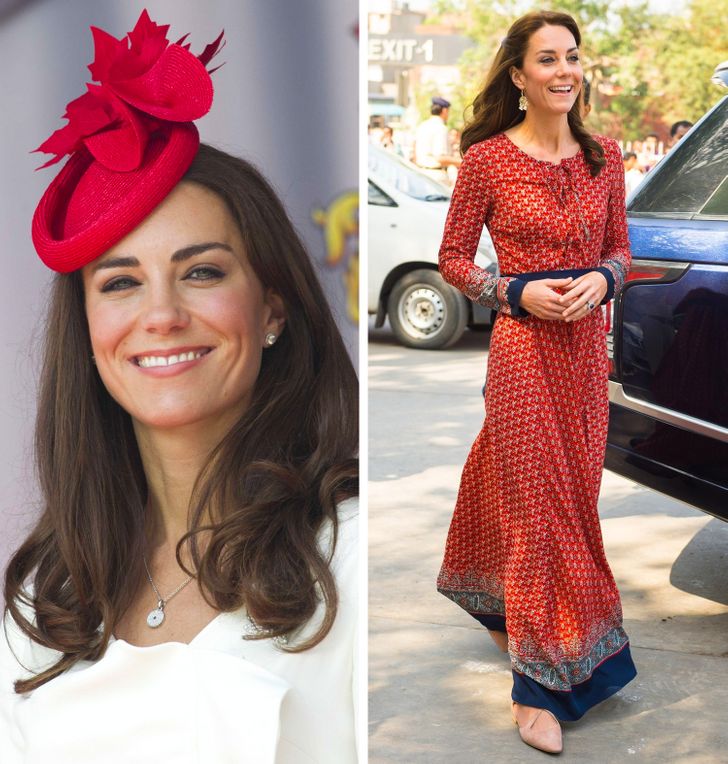
During royal tours, experts meticulously plan every detail to ensure cultural respect and diplomatic goodwill. For instance, during a visit to Canada, the Princess of Wales wore a red and white ensemble, reflecting the national colors, and adorned her hat with maple leaves, Canada’s emblem. Similarly, in New Delhi, she chose a £50 Indian-inspired maxi dress from the Manchester-based brand Glamorous, demonstrating cultural appreciation and economic sensitivity. Such sartorial choices exemplify fashion diplomacy, where attire is thoughtfully selected to honor the host nation’s culture and context.
In climates akin to the UK’s, a coat is an indispensable wardrobe staple. For individuals like Princess Catherine, balancing comfort with aesthetics is paramount. Opting for coatdresses—coats tailored to resemble dresses—achieves this harmony, offering warmth while maintaining a feminine silhouette. This style choice is not exclusive to royalty; anyone residing in colder regions can adopt coatdresses to stay both comfortable and stylish during winter months. Additionally, layering with moisture-wicking base layers and insulating mid-layers enhances warmth without compromising on elegance.
Queen Elizabeth II was renowned for her vibrant wardrobe, a deliberate choice to ensure visibility in crowds, embodying her belief that “you have to be seen to be believed.” Princess Catherine, as the future Queen Consort, has embraced this approach, transitioning from subtle hues during her early public appearances to more vivid colors post-marriage. However, when attending events alongside the Queen, Catherine often opts for pastel or darker shades, adhering to royal protocol that discourages overshadowing the reigning monarch’s brightness.
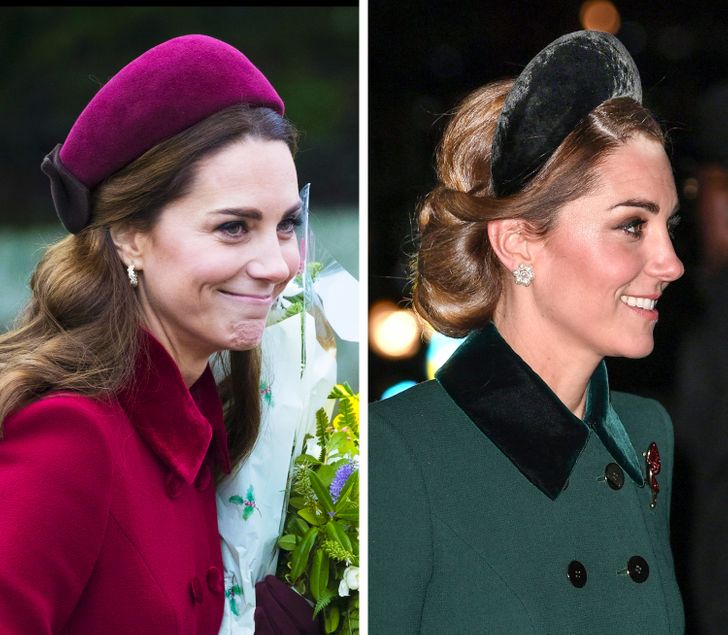
Elegant hats are a key part of British tradition, and Princess Catherine has made fascinators her signature style. She also popularized wide silk and velvet headbands as chic alternatives to traditional hats. Her influence has sparked a resurgence in these accessories, proving that even classic royal fashion can shape modern trends.
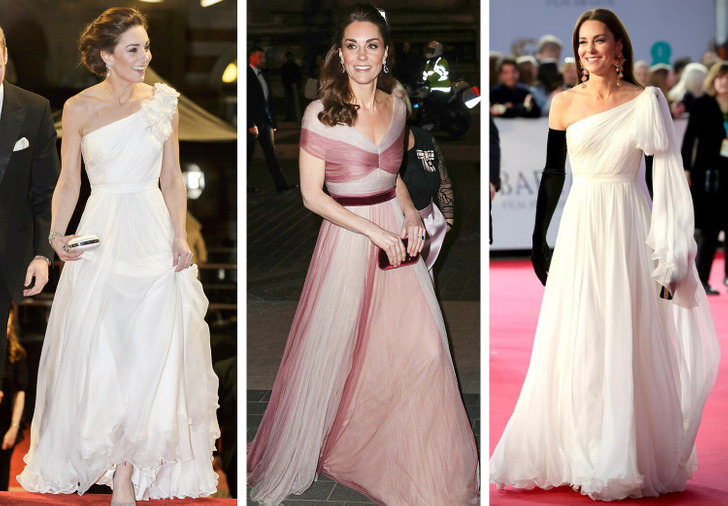
For evening events, Princess Catherine often opts for soft pastel hues and elegant floor-length gowns, epitomizing noble sophistication. A standout example is her appearance at the 2019 British Academy of Film and Television Arts (BAFTA) awards, where she wore a white one-shoulder Alexander McQueen gown adorned with floral appliqué on the shoulder. This choice garnered widespread acclaim for its timeless elegance.
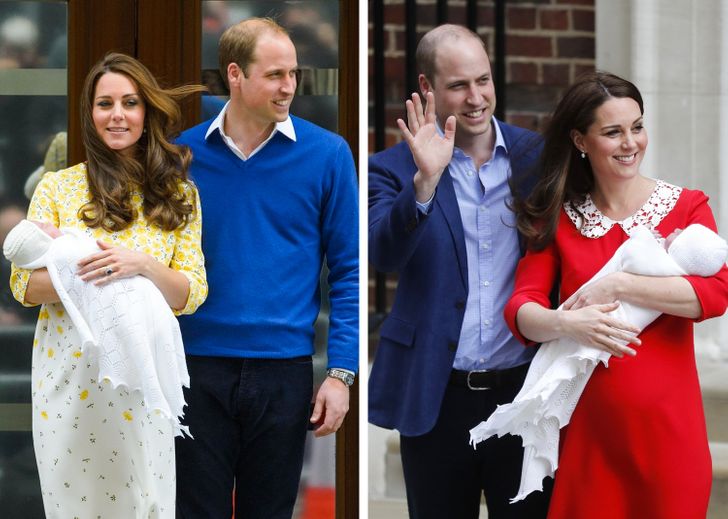
Princess Catherine has become acutely aware of the constant scrutiny accompanying her royal role. Whether attending official events, participating in sports, enjoying family outings, or even shortly after childbirth, every appearance is closely observed by both the media and the public. This relentless attention means that any minor misstep can quickly become global news. Consequently, members of the royal family, including Catherine, must consistently uphold impeccable standards, recognizing that they are perpetually in the public eye.
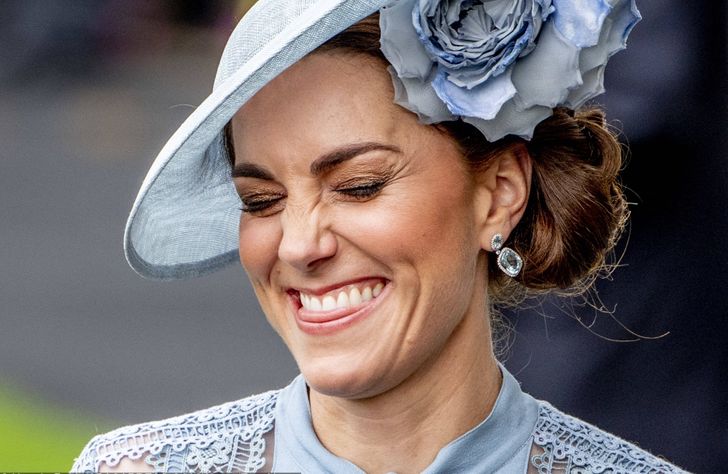
Through years of experience, Princess Catherine has mastered the art of maintaining grace and composure under the public eye. Her ability to balance tradition with modern elegance ensures she remains a beloved and influential figure in the world of fashion and beyond.

